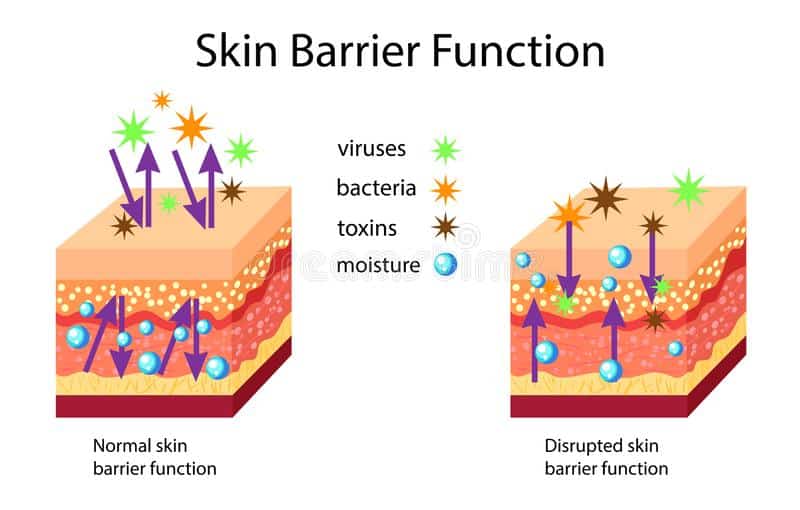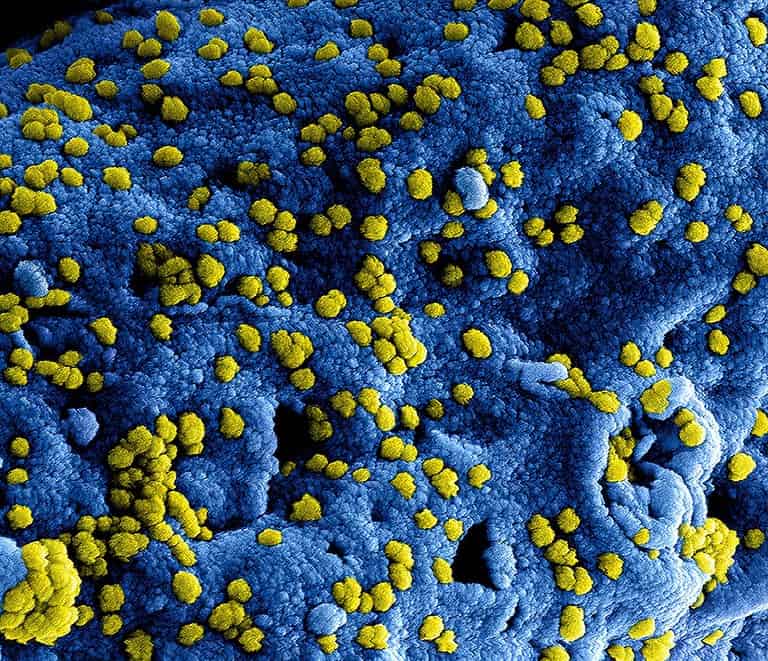How to Balance Skin Microbiome for a Healthier Family
Learning how to balance skin microbiome is essential for maintaining healthy, radiant skin. The modern family seeking actionable guides and ideas for a healthier lifestyle will find this blog post informative and valuable.
In the following, we will examine why knowing how to balance skin microbiome is significant and analyze the intricate relationships between microorganisms on our skin. Furthermore, we’ll discuss factors affecting your skin’s microbiota balance, such as the impact of modern lifestyle choices and the consequences of an imbalanced microbiome.
Finally, you’ll discover practical tips on how to balance your skin’s microbiome through proper skincare practices and products that support a healthy bacterial ecosystem. By understanding how to balance skin microbiome, you can make informed decisions to improve your overall well-being while nurturing vibrant, resilient skin.
Table of Contents
- Understanding the Skin Microbiome
- Factors Affecting Your Skin’s Microbiome Balance
- Tips for Balancing Your Skin Microbiome
- Skin Barrier Repair Products
- FAQs in Relation to How to Balance Skin Microbiome
- Conclusion
Understanding the Skin Microbiome
The skin microbiome plays a crucial role in maintaining healthy and beautiful skin by producing vitamins, hormones, and chemicals that affect mood and metabolism. It serves as a protective barrier against pathogens, inflammation, and infection while trapping moisture to keep irritants out. Research has shown links between certain bacterial strains, such as P.acnes, with conditions like acne vulgaris and atopic dermatitis.
Importance of a Balanced Skin Microbiome
When the harmony of your skin’s microbiome is upset due to things like intense skincare regimens or environmental pressures, it can cause problems such as dryness, inflammation, and even more serious conditions like eczema or psoriasis. By promoting diversity within your microbial communities on your skin surface through proper care practices & lifestyle choices – you can help ensure optimal functioning for a healthier-looking complexion.
How Microbial Communities Interact on the Skin
Your skin’s microflora consists of various bacteria species, fungi & viruses, which all play an important role in maintaining its health by working together symbiotically. These organisms not only compete for resources but also cooperate to protect their environment from harmful invaders (pathogens). For example, some microbes produce antimicrobial substances called bacteriocins that inhibit the growth of other competing bacteria; others break down sebum into free fatty acids, which have natural antibacterial properties.
- Bacteriocins: Produced by beneficial bacteria to fight off pathogenic ones.
- Fatty Acids: The breakdown of sebum by microbes provides natural antibacterial protection.
Factors Affecting Your Skin’s Microbiome Balance
Modern lifestyles have led to changes in our exposure to nature and over-hygienic practices, which can negatively impact the diversity of our microflora. Individuals with primary immunodeficiency tend to have less stable skin microbiomes due to their more ecologically permissive nature.
Impact of Modern Lifestyle on Your Skin’s Microflora
The shift towards urban living, increased use of synthetic materials, and lack of contact with natural environments have disrupted the delicate balance of our skin’s microbiome. For instance, studies show that people living in rural areas tend to have a more diverse skin microbiota compared to those in urban settings. Furthermore, the overuse of antibacterial soaps and sanitizers can deplete beneficial bacteria from your skin, leaving it exposed to potentially harmful pathogens.
- Air pollution: Exposure to pollutants like smog or cigarette smoke can damage your skin barrier function and alter its microbial composition.
- Diet: Consuming processed foods high in sugar or unhealthy fats may contribute negatively to your overall gut health, which could affect your skin’s microflora as well.
- Sun exposure: Overexposure without the proper protection may lead not only to sunburn but also to an imbalance within the bacterial communities residing on your epidermis.
Consequences of an Imbalanced Microbiome
A study has found that individuals with acne have a higher abundance of P.acnes bacteria on their skin, which can cause inflammation and breakouts. An imbalance in the microbial community can also weaken your skin’s protective barrier, increasing its vulnerability to infections and irritations.
- Inflammation: Imbalances within the microbiome could lead to chronic low-grade inflammation, contributing to conditions like rosacea or dermatitis.
- Aging: Research suggests that imbalanced microflora might accelerate the aging process by affecting collagen production and promoting oxidative stress.
- Sensitivity: Disruptions in your skin’s natural defenses may result in an increased sensitivity towards environmental factors such as allergens or harsh chemicals present in skincare products.
Tips for Balancing Your Skin Microbiome
It is important to learn how to balance skin microbiome. You can balance your skin’s microbiome by avoiding harsh chemicals, using gentle sanitizers, incorporating topical probiotics into your routine, eating well & applying sunscreen daily.
Avoid Harsh Chemicals in Skincare Products
Many skincare products contain synthetic components and aggressive substances that can interfere with the sensitive equilibrium of your skin’s microbiome. Instead, choose skincare products that are free of potentially damaging ingredients like parabens, sulfates, phthalates, and other synthetic compounds.
Use Gentle Hand Sanitizers
Frequent washing or application of alcohol-based sanitizers can upset the natural equilibrium of our skin’s microorganisms. Opt for products buffered with ingredients like aloe vera instead to maintain moisture levels while still providing effective protection against harmful germs.
Incorporate Topical Probiotics Into Your Routine
Topical probiotics have been shown to improve various skin conditions, including acne and eczema, by promoting a balanced microbial environment on the surface of the skin. Look for creams or serums containing live bacteria strains such as Lactobacillus and Bifidobacterium to help restore your skin’s natural balance.
Eat a Balanced Diet
Maintaining the health of your skin microbiome is essential and can be supported through diet. To bolster beneficial bacteria on your skin, incorporate probiotic-rich foods such as yogurt, kefir, sauerkraut, and kimchi into your diet.
Apply Sunscreen Daily
Excessive sun exposure can damage not only the outer layers of our skin but also its delicate microbial ecosystem. Make sure to apply a broad-spectrum sunscreen with at least SPF 30 every day to protect against harmful UV rays.
Skin Barrier Repair Products
Investing time into skin barrier repair products can help address the root causes of various dermatological issues. Products intended to fortify the skin’s natural protection, sustain moisture levels, and nurture a balanced microbiome are available. In this section, we will discuss the benefits of using skin barrier repair products and introduce an example product recommended by licensed esthetician and skin barrier educator Kathryn Mazierski. Source
Source
Benefits of Using Skin Barrier Repair Products
- Nourish and protect: Quality skin barrier repair products contain essential nutrients like ceramides, fatty acids, and cholesterol, which nourish your skin while reinforcing its protective layer.
- Maintain balance: By supporting a healthy microbiome on your skin’s surface, these products help prevent harmful bacteria from causing inflammation or other problems.
- Fight aging: A strong epidermal barrier is key in preventing premature aging caused by environmental factors such as UV radiation or pollution.
- Promote healing: When used consistently over time, these creams can aid in repairing damaged areas more quickly than if left untreated.
Example Product: DMS Base Cream High Classic
The DMS Base Cream High Classic is a fast-penetrating cream with Mineral Clay Gel. It has gained popularity among skincare professionals for its ability to support the natural functions of our largest organ – the skin. Some notable features include:
- Dermaviduals® Membrane Structure (DMS): This unique formulation mimics the structure of our skin’s natural lipid barrier, allowing for optimal absorption and compatibility.
- Mineral Clay Gel: A blend of natural minerals that work together to soothe irritation, reduce inflammation, and detoxify the skin.
- Customizable: The DMS Base Cream High Classic can be easily customized with various active ingredients to target concerns such as acne or hyperpigmentation.
FAQs in Relation to How to Balance Skin Microbiome
What causes microbiome imbalance in the skin?
Imbalances in the microbial makeup of our skin may be caused by a range of elements, including ecological alterations, inadequate hygiene routines, and pre-existing medical issues—exposure to pollutants or allergens.
Poor hygiene practices, such as infrequent bathing or not changing out of sweaty clothes, and some medical ailments, such as diabetes and eczema, may disrupt the microbial population on our skin and lead to an imbalance. Finally, stress levels have been shown to influence how well our bodies maintain their natural microbiome balance on the skin.
What is the solution to improving the skin microbiome?
The skin microbiome is comprised of a variety of bacteria, fungi, and other microorganisms that colonize our epidermis. To improve your skin microbiome, it’s important to practice good hygiene habits such as washing with a gentle cleanser twice daily and using a moisturizer after bathing or showering. Including probiotics in your diet may be beneficial as well.
Conclusion
It is important to Learn how to balance skin microbiome. It can be done through regular cleansing and moisturizing, avoiding harsh products that strip away natural oils, eating a nutritious diet full of prebiotics and probiotics to nourish the beneficial bacteria on your skin’s surface, and treating any imbalances in the microbiome quickly with targeted treatments. By following these steps, you can ensure that your skin remains well-balanced and looks its best.
Discover how to keep your skin microbiome balanced and healthy with Smart Living Now‘s comprehensive, science-backed resources. Get started on a healthier lifestyle for you and your family!


.jpg)





